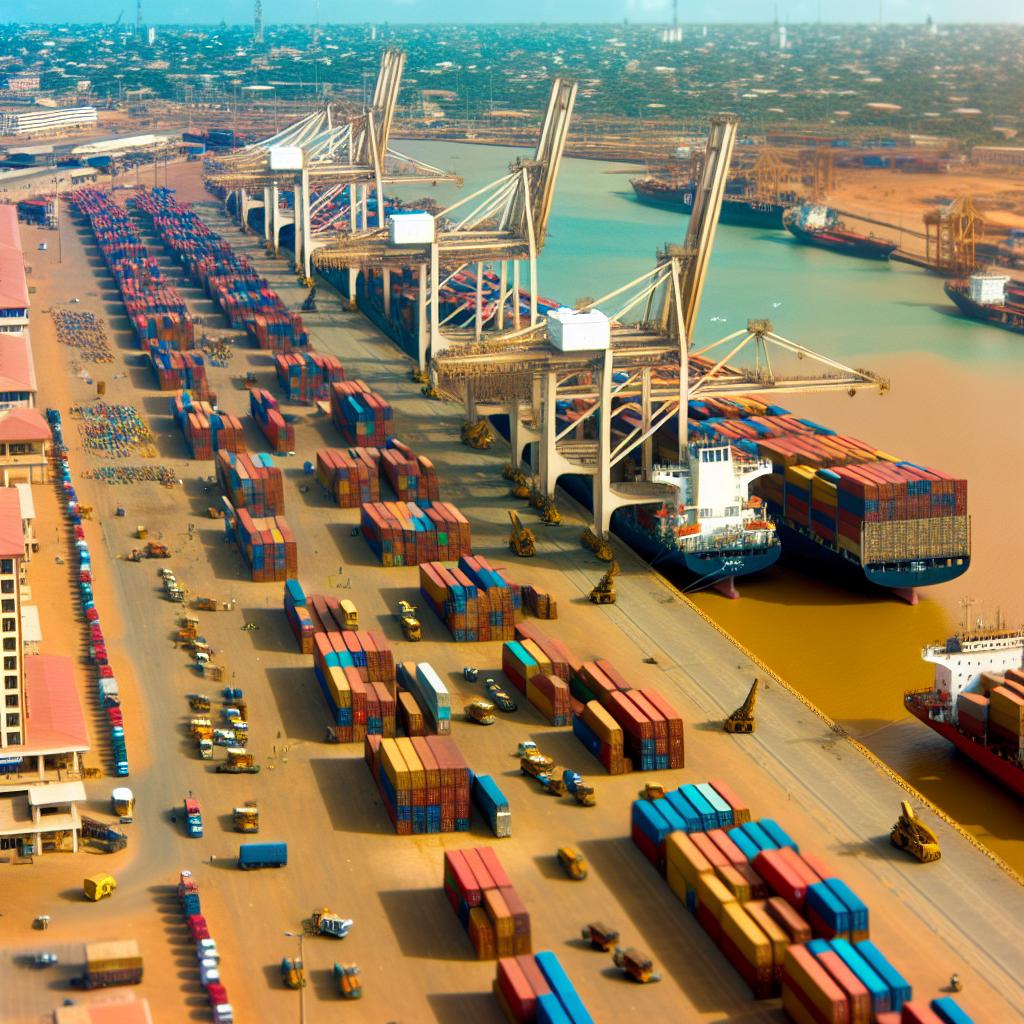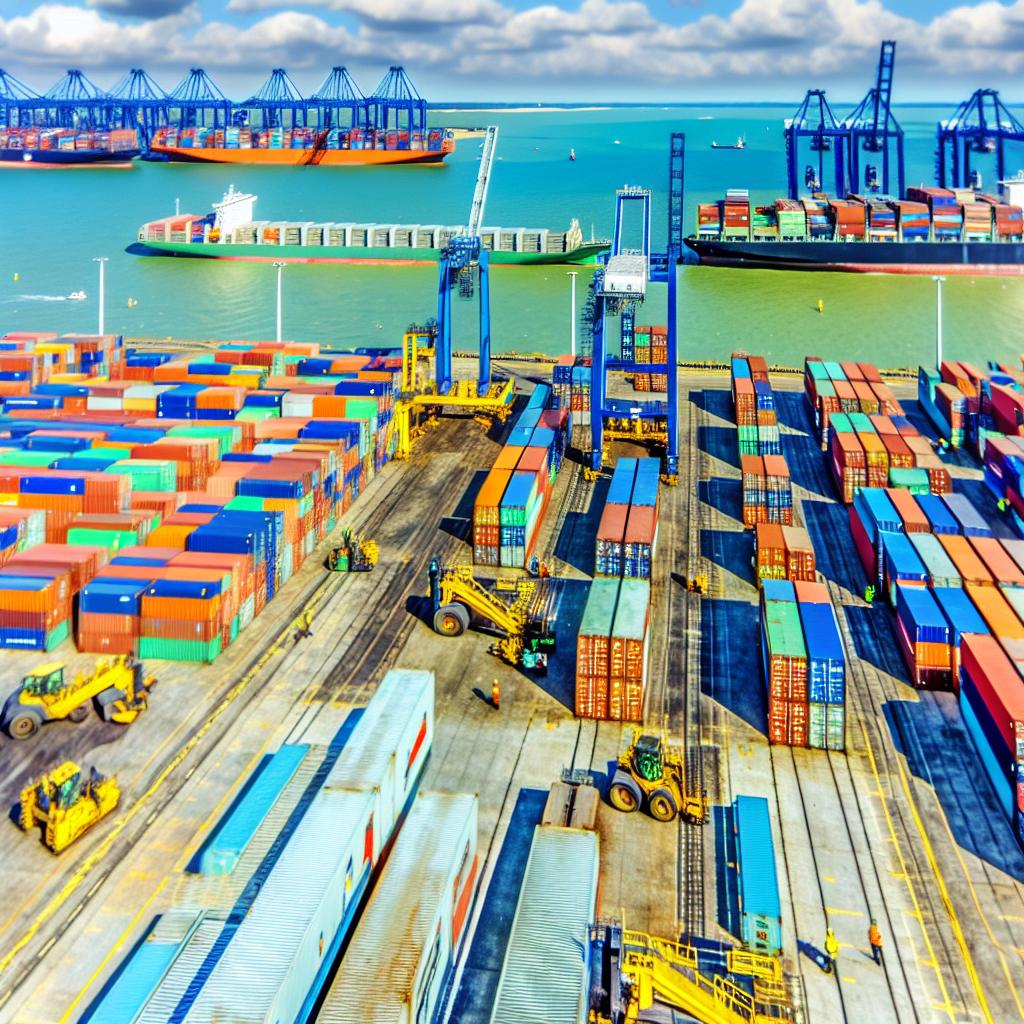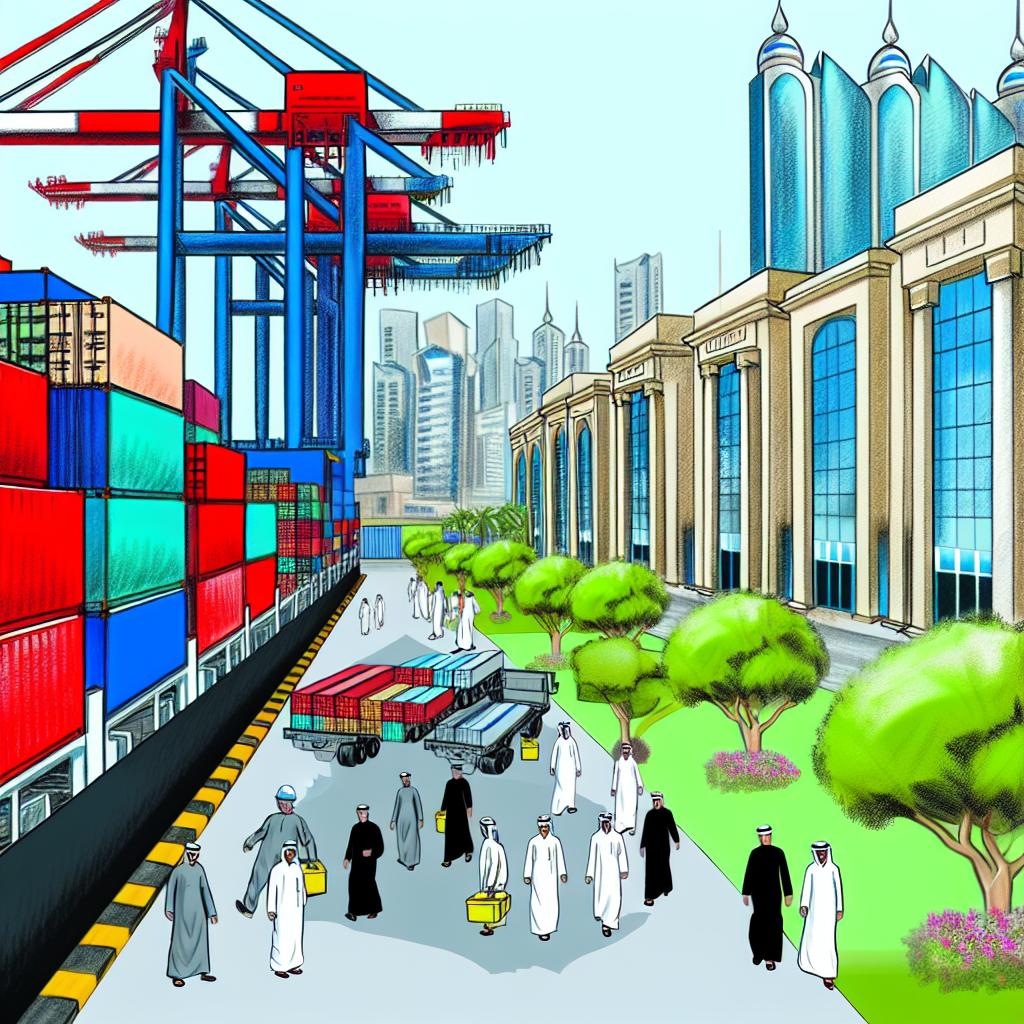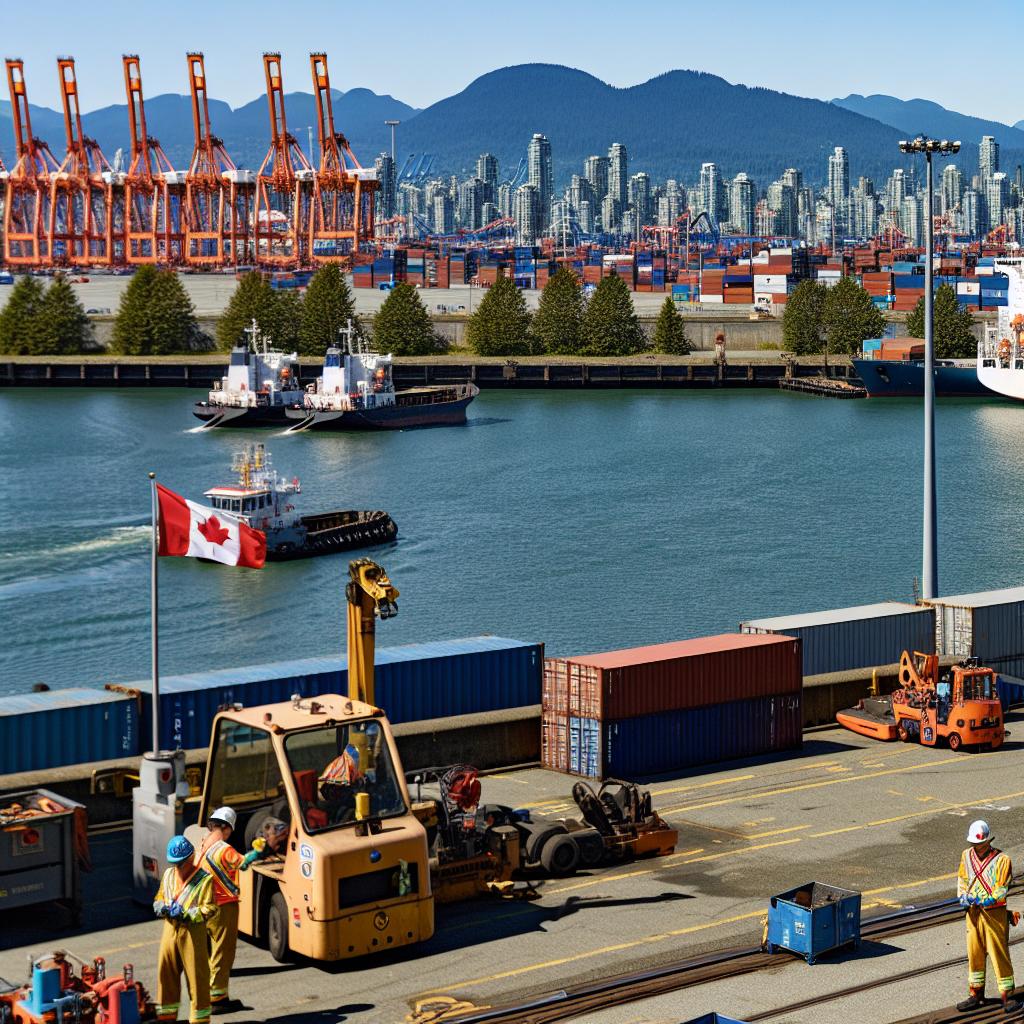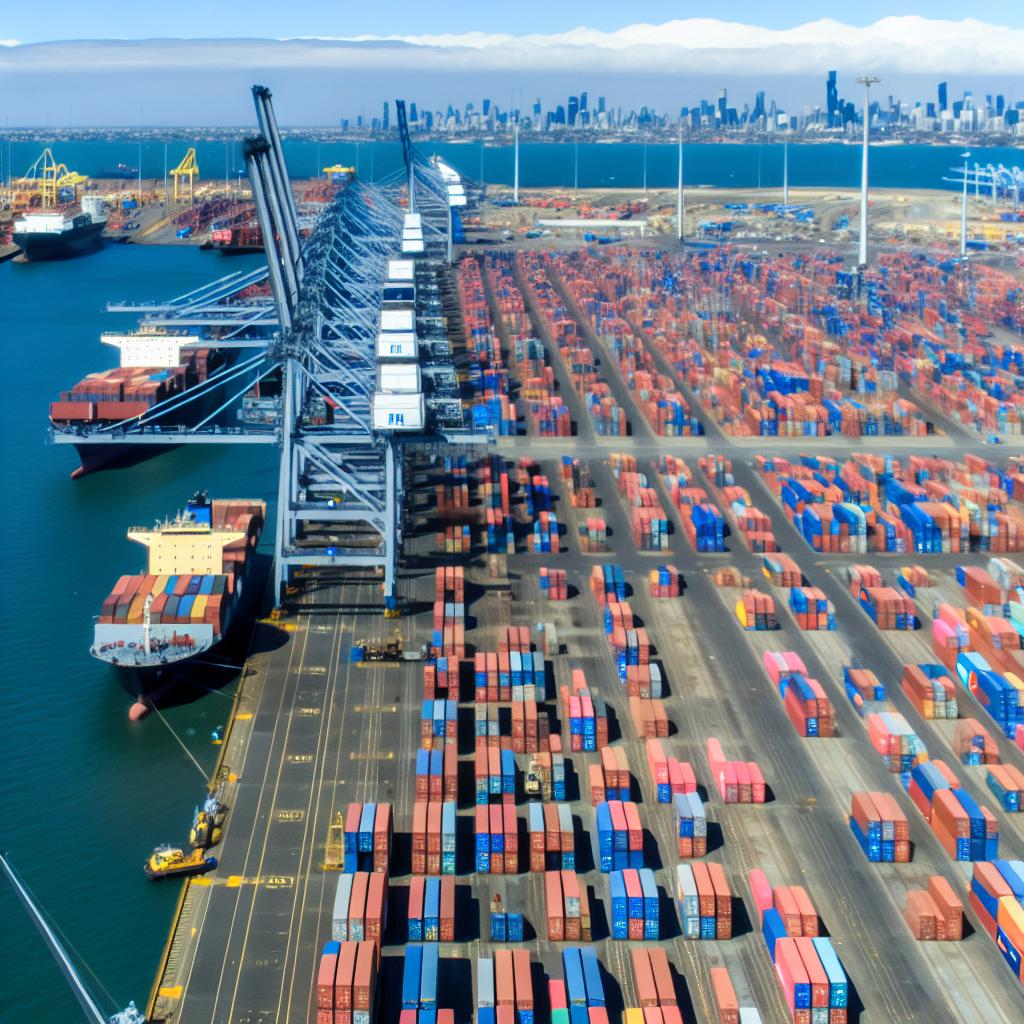Overview of the Port of Lagos
The Port of Lagos, located in Nigeria, serves as West Africa’s busiest and most significant container port. It plays a pivotal role in the region’s trade and commerce, handling a substantial volume of goods and facilitating international trade operations. The port is instrumental in advancing Nigeria’s economy and enhancing its connectivity with global markets.
Geographical Significance
The city of Lagos, situated along Nigeria’s southwestern coast, is strategically positioned as a vital gateway bridging the continent of Africa with the international community. Its geographic position offers a direct access route to major sea lanes, thereby boosting its accessibility and appeal as a preferred trading hub. The strategic positioning of the Port of Lagos not only facilitates significant trade activities but also underscores its importance as a critical entry and exit point for imported and exported goods. This capability complements both national and regional market demands, providing an essential link in the supply chain for numerous industries.
Infrastructure and Facilities
The infrastructure of the Port of Lagos is a crucial aspect of its functionality. It is fortified with an array of modern facilities designed to handle various kinds of cargo. From containerized merchandise to bulk and general cargo, the port contains all the necessary equipment and logistical support to ensure the smooth operation of large shipments. This infrastructure undergoes regular upgrades to adapt to the increasing complexities and demands of international trade, thereby maintaining its operational efficiency and competitiveness.
Container Terminals
The port is home to several advanced container terminals, each integrating the latest technological advancements to streamline the movement of containers. These terminals have been specifically designed to manage a significant volume of throughput, which helps in alleviating congestion and refining turnaround times. By doing so, the port not only enhances its cargo handling capabilities but also optimizes the flow of goods in and out of the facility, which is vital for minimizing hold-ups and maximizing productivity.
Bulk Cargo Terminals
Another key feature of the Port of Lagos is its specialized bulk cargo terminals. These facilities are critical as they handle a wide array of goods, including grains, petroleum products, and other raw materials. The efficient movement of such resources is crucial for supporting diverse industries within Nigeria and across the region. The ability to handle bulk cargo efficiently positions the port not just as a transit point but as a critical supply node for various industries dependent on these essential materials.
Economic Impact
The economic footprint of the Port of Lagos on Nigeria’s GDP is profound. It fosters an environment conducive to trade and commerce, which in turn underpins the livelihoods of thousands of individuals across a range of roles—from logistics and shipping to administration and operations. As a powerful economic engine, the port not only propels industrial growth but also supplies key inputs necessary for local industries to thrive. Its impact is felt throughout the large-scale industrial activities that it supports, thereby driving progress and innovation across the nation.
Trade and Commerce
By establishing efficient import and export processes, the Port of Lagos strengthens trade relations between Nigeria and its global partners. It serves a vital role in ensuring the efficient distribution of goods across West Africa, contributing to the optimization of the region’s economic capacity. The port’s operations help in establishing and nurturing business relationships, encouraging not only national but also regional economic development.
Challenges and Developments
Despite the Port of Lagos’s indispensable role, it is not without its challenges. Congestion and infrastructural limitations are some of the issues that hinder its operational efficiency. To address these concerns, several development projects are actively being pursued. These initiatives focus on expanding the port’s capacity and improving its overall functionality. By implementing these development strategies, the port seeks to overcome existing hurdles and better position itself as a leader in global maritime operations.
Future Prospects
Looking to the future, the Port of Lagos has ambitious plans for expansion and modernization to accommodate increasing trade volumes. Several promising initiatives are in the pipeline, aimed at boosting the port’s standing as a premier container hub in Africa. These forward-looking projects focus on not only enhancing capacity but also ensuring that the port remains competitive on a global scale over the long term. With strategic investments, the port aims to evolve in tandem with the dynamic landscape of international trade.
Conclusion
In conclusion, the Port of Lagos continues to function as a foundation of commerce and trade in West Africa. Its strategic geographic location, advanced facilities, and proactive development strategies combine to maintain its prominence as an essential economic hub in the region. By continuously addressing present-day challenges and leveraging future growth opportunities, the Port of Lagos is poised to further drive economic advancement. It stands as a testament to the role of infrastructure and trade in engendering growth, not only within Nigeria but throughout the broader Western African region.
